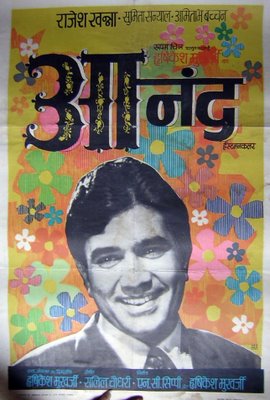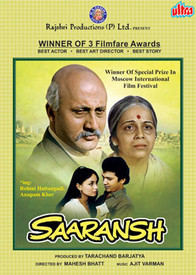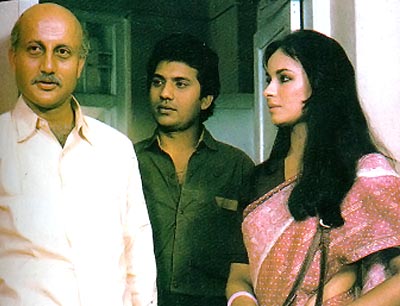Shekhar Kapur's "Bandit Queen" has gotten more mileage from the hoopla surrounding the temporary ban on the movie in India than on the substance of his dramatization of the life and times of Phoolon Devi, the country's most wanted outlaw between 1979 and 1983. Adapted from a book by Mala Sen, the movie was stalled by a lawsuit brought on by Phoolon Devi who insists that Shekhar Kapur's portrayal of her life through the prism of a series of rapes, was grossly inaccurate.

Mala Sen's riveting India's Bandit Queen - The True Story of Phoolan Devi is stranger than fiction. She skillfully delineates the social and political nuances of Indian culture and painstakingly separates fact from fiction in the telling and retelling of the story of Phoolon Devi which had taken on mythic proportions in Indian folklore. Born into an indigent, sharecropper family oppressed by India's rigid caste and class system, a prepubescent Phoolon was married off to a man three times her age. An abusive man, he beat and raped his child bride till she ran away to her natal village. Back in the parental home, a cousin Maiyadin usurped her father's parched land with the help of the landowning Thakurs who keep the tillers of the soil impoverished and in their place. He also masterminded the rape and abduction of an adolescent Phoolon by a rag tag gang of brigands when she began to defend her father's meager property rights.
In the rough and tumble world of banditry her gradual transformation occurred, from a violated child to a tough outlaw. With her lover Vikram Mallah, also from an oppressed caste they formed a gang of outlaws robbing from the rich and waging a class warfare against the vested interests of the landed Thakurs.
The cold massacre of 20 Thakurs in the little known district of Behmai just south of New Delhi allegedly by Phoolon and her bandits as a revenge for the killing of her lover Vikram Mallah and of her gang rape by the Thakurs, will live on in infamy and ultimately crown Phoolon Devi as India's "Bandit Queen" by a sensational and often anesthetized media on gender and caste issues.
Indira Gandhi's government, much beholden to the Thakurs for the block votes to keep the Congress(I) party in power embarked on a hunt for these fugitives who successfully eluded their quarry for 3 long years. For the underclass of the Chambal valley, unaffected by media frenzy, Phoolon Devi became a populist cult figure, albeit a vigilante liberator of their class struggle toward social justice. In the end, Phoolon agreed to a negotiated surrender beaten down by converging police forces from three states.
But the journey from the book to a screenplay can be treacherous when the subject matter is as volatile and as unsettling as Phoolon Devi with her many manifestations as Kali the goddess of destruction, Durga the goddess who was born to kill, and Phoolon the liberator of the underprivileged, the voice of the people.
The film opens with the girl Phoolon bathing in the river shouting invectives, a precursor I suppose to a tart tongued, tomboy, rebel mantle Kapur bestows on his heroine right from the start. The child is cursed right from the start. Every frame is one of abuse and endurance, of indignities piled one on top of the other. The movie rape of the child bride is as disingenuous as the flashbacks Phoolon visualizes as she brutally beats the crap out of her abusive husband later on in the movie.
Kapur goes for instant audience gratification as he fabricates yet another scenario for cinematic appeal where the leader of the gang, his bare butt romping up and down is raping Phoolon in full view of his pack of thieves. Young Vikram Mallah disgusted by the assault on a woman blows the rapist away from a fully clothed Phoolon.
In reality the leader, a notch above Vikram Mallah in the unyielding hierarchy of the caste system, began to castigate his young lieutenant on his lowly birth. Mallah was protecting Phoolon from the advances of his drunken leader. When the sot reached for his gun, Mallah sensing an opportunity for a coup within the ranks killed him and his two henchmen and cinched his position as the first in his caste to lead a gang of bandits.
The flagrant phallic image of a Vikram Mallah, flat on his back with his rifle sticking erect between his legs is gratuitous and just does not fit the context of the film. The awkward love scenes are as hokey as the gang rape by the Thakurs as men emerge in and out of the revolving door in casual slow motion.
"Bandit Queen" is essentially a never ending sequence of rapes and the mindless violence of a one-dimensional Rambo-lina on a righteous rampage. The deeply religious and superstitious Phoolon who is also a daughter, a sister, a lover is left unexplored. Seema Biswas, who plays the title character does the best she can with emotions ranging from anger to anger with a supporting cast who come off as robotic characters with no history. But she does make you feel for Phoolon, a dangerous hero in a corrupt political and feudal social order.
Maiyadin, the bane of Phoolon's family is not even a peripheral character in the "true story" according to the gospel of Shekhar Kapur. Neither is there any examination of the reason why Phoolon did not trust the police or the legal system. They were bought off by Maiyadin. Land ownership was the only way that cousin Maiyadin could elevate himself to some level of economic respectability within the social apartheid of the caste system.
Cinematic fabrications add to discredit the director's bravado that he and not Phoolon Devi is the one who has the handle on the truth, even though he has admitted in India Today to wide factual discrepancies and omissions in the film he put together.
Despite all the manufactured hoopla I doubt that "Bandit Queen" will survive its season either as a memorable film or as a commentary on the caste system, for the evil that the uppercrust Shekhar Kapur tries to portray lies beyond his imagination.












